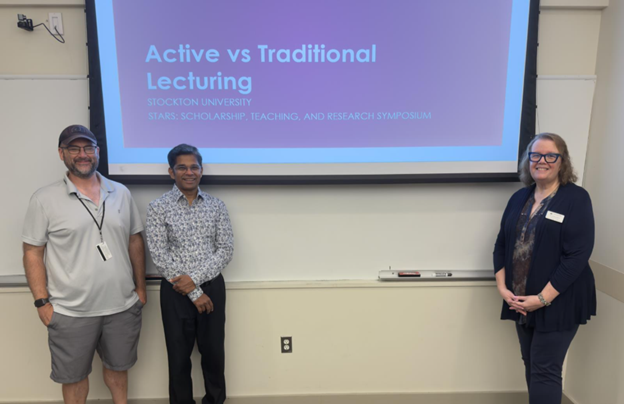Rubrics are a valuable tool that supports student growth and facilitates instructor grading and feedback (Suskie, 2018). As instructors, we see this value; unfortunately, many of our students, especially first-year students, are unfamiliar with the concept. This presents an opportunity to raise their awareness of a tool that will benefit them as they master concepts and seek course success.
The Context
During a two-week mathematics-focused summer bridge program, I teach a segment called Behind the Scenes, which highlights various success strategies students will need to leverage to be successful in college. One lesson exposes these students to the concept of rubrics, covering everything from their purpose, structure, and application.
The Illustration
As noted by Doyle and Zakrajsek (2018), “The human brain is constantly looking for connections. Connections help you use prior knowledge to build bridges to the new material, creating a more meaningful understanding of the new material” (p. 15). Building off this idea, the lesson begins with an illustration about desserts, specifically cake, a concept which will resonate with most if not all students. The following instructions are given:
I took a vote and decided that math is out, cake is in. Cake has much more bearing on your future than math. Your assignment is to design the cake I want to eat for lunch today. You will be graded on this, and it will be worth a lot of points. Take a couple of minutes to sketch out your design, making note of the details. You will not be graded on your artistic ability or lack of materials.
As students are working, I’m walking around the room. Sometimes, they will ask me questions about my preferences. Much to their dismay, I tell them I am not answering questions at that time, but that they will understand why in a few minutes.
The Discussion
I ask for volunteers to share their designs with me. As the student shares, I find a reason why I do not want to eat their cake. Perhaps there are not enough layers, or it’s not my favorite flavor. I will then subjectively give them a grade, loosely based on the rubric I will eventually show them, but with an element of randomness to aid the discussion. Finally, I’ll show them a picture of the right answer: a three-layer lemon cake decorated with pale yellow frosting, lemon slices, and a few small flowers.
I then pose a series of questions for discussion:
What did you think of my grading? Was it subjective or objective? Why? If we repeated this assignment, what would you want to know to meet my expectations?
Understandably, students are not a fan of how I graded, correctly identifying the subjective nature. Based on the grading and feedback they heard me give the volunteers, they can identify several criteria that would be helpful to know in advance. As we talk through these ideas, I make the connection that in higher education the tool we use to be transparent about expectations and objectively grade assessments is called a rubric. Of course, I also backtrack and tell them, “FYI, math is back in – turns out it is useful.”
Once we have defined a rubric, we talk about the structure. I present to them a sample cake rubric, and talk about the grid format, with rows representing the criteria we will be evaluating (layers, flavor, decoration); columns representing the performance rating (needs improvement, proficient, advanced); and the cells containing descriptions of performance and point values (0, 5, 10).
The Application
After we establish what a rubric is and how instructors use it, we turn towards application of rubrics as a way for them to pre-grade their assignments before submitting. Each student in the program will be enrolled in a first-year seminar their first term, which becomes the example from which they can practice. I pass out the first-year seminar rubric along with the assignment prompts, which are consistent throughout the course. I also provide two sample responses, one that clearly does not meet expectations (43 words total), and one that does meet expectations (270 words total). I ask them to work in pairs to review the submissions and grade them using the given rubric, which includes four criteria and two performance levels.
Pairs are then asked to report out their score for the first submission, and we talk through their decisions. I share with them my grade as well. This process is repeated for the second submission. We also discuss what they liked about the experience and what they found challenging. In all, this lesson takes about thirty minutes but could be shortened or lengthened as needed.
Doyle and Zakrajsek (2018) further identified that “when learning something new, it helps to be interested in it, see a value to it, pay attention to it, associate it with something you already know, and practice it a lot” (p. 100). The cake illustration is something they already know, and let’s be honest, if it relates to food, college students are very interested. Through the absurd example, they see the value which piques their curiosity and attention. The hands-on practice, while maybe not sufficient in and of itself, at least provides some experience with a new idea from which they can build their confidence.
This rubric lesson not only raises awareness of a grading technique they will encounter over their time in college, but they get practice with an actual rubric that will be used in their first term. Further, their review of poor and exemplary submissions can help frame the direction they need to take when it comes to their own assignments. As McGuire (2015) pointed out, one way “to help your students gain competence is giving them targeted feedback, rubrics, and exemplars” (p. 88).
When students understand the purpose of the rubric, they are better positioned to achieve success in their courses. Proactively, it allows them to assess whether they are meeting assignment expectations before the due date. Reactively, it allows them to understand why they missed points, leveraging the feedback as formative assessment and making corrections for future assignments.
Sarah A. Forbes, PhD, is the Student Academic Success Director and a first-year seminar instructor at Rose-Hulman Institute of Technology. In these roles, she helps students learn new strategies for academic success. Sarah also serves as a first-year seminar instructional designer, summer bridge program director, and academic advising program administrator.
References
Doyle, T., & Zakrajsek, T. D. (2018). The new science of learning: How to learn in harmony with your brain. Stylus Publishing.
McGuire, S. Y. (2015). Teach students how to learn. Stylus Publishing.
Suskie, L. (2018). Assessing student learning: A common sense guide. John Wiley & Sons, Incorporated.


























